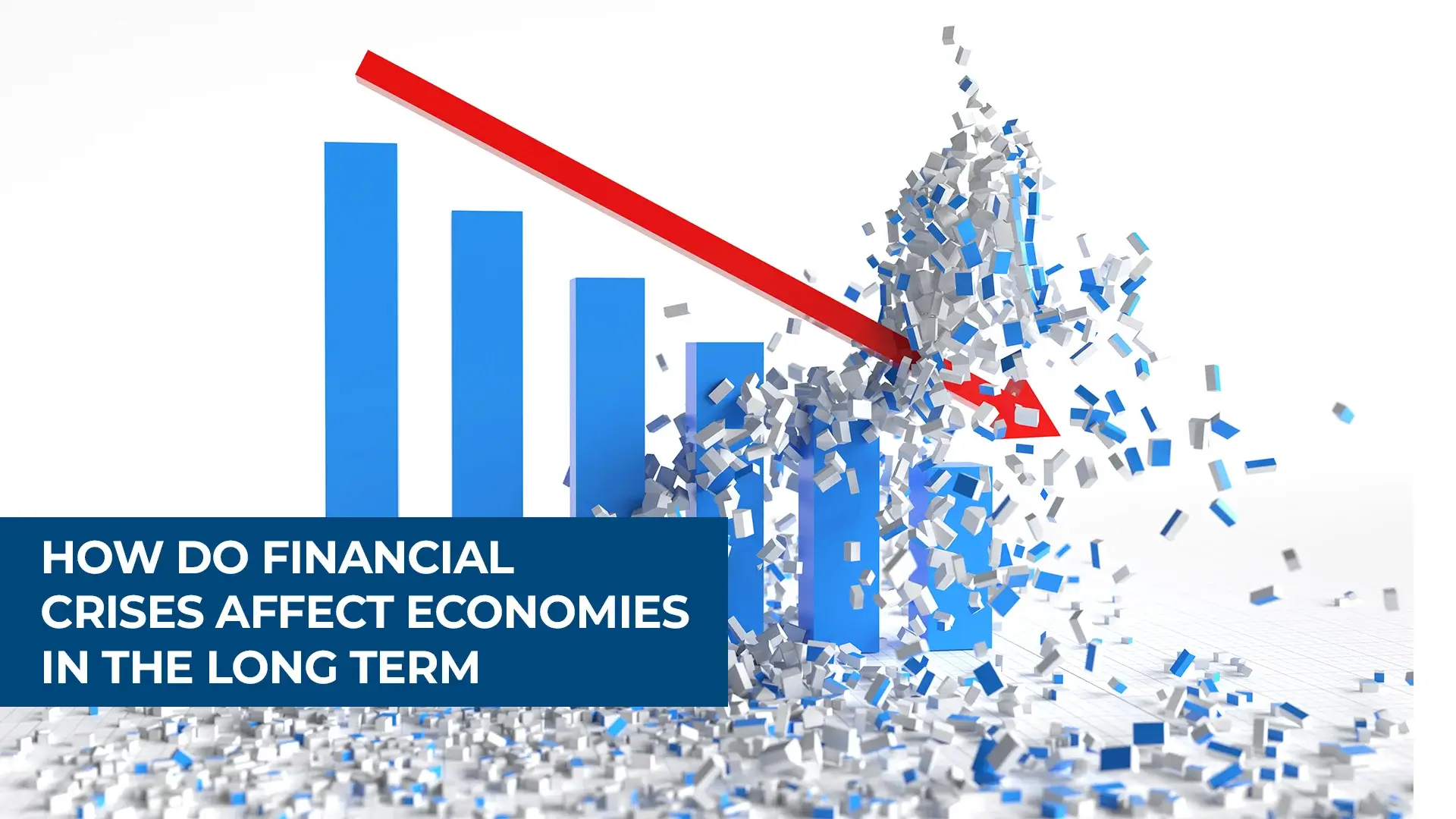Financial crises disturb the economy and may have a long-term impact. In contrast, there are various types of economic crises, including banking, currency and debt crises. On the other hand, the repercussions varied and affected growth and employment. Read the article and explore how financial crises affect the economies in the long term.
WHAT IS ECONOMIC CRICES
It is majorly a sudden economic downturn. Hence, it is characterized by significant disturbance in the monetary market, declining business profits, and a rising unemployment rate. Economic crises are initiated by various factors leading to overall financial hardship. On the other hand, policymakers often react with measures to stabilize the economy, such as bailouts or monetary easing, but in the long run, the recovery can be slow and irregular.
CAUSES OF FINANCIAL CRISIS?
Economic crises can cause by various factors, including extreme risk-taking by financial establishments, theoretical bubbles in investment markets and poor management systems. On the other hand, other factors contribute to economic crises, such as high levels of private and public debt and influential imbalances in government finances. In addition to this, external shocks and natural disasters also contribute to the economic crises. Hence, the factors lead to global panic, resulting in financial crises. Continue to read and explore more about financial crises.
Financial Development and Recuperation
One of the major and unbearable effects of financial crises is the compaction of economic activity. During economic crises, the credit market seizes and reduces investment. Hence, the outcome is a sharp decline in GDP. On the other hand, the recovery can be prolonged and unstable depending on the causes and the policy reaction. Thus, there are some countries that actually take decades to recover from the financial crisis.
Income Allocation and Unevenness
In the long term, financial crises often worsen income unevenness. Initially, it will affect the lower income, as they are more vulnerable in the workplace, so there must be a reduction in income. Hence, the gap between the wealthy and the poor is broadened accordingly. This will increase the imbalance and have a long-term effect of stability that will take decades to bridge the gap.
Economic Sector and Ordinance
The financial crises may bring major changes to the financial sector. Hence, the crises also weaken the financial scenario, driving calls for administrative reforms. In some cases, it will lead to a stable and improved system. On the other hand, it is important to have a strategy that will aim to decrease the possibility of forthcoming crises and improve the management of financial institutes. Moreover, the transformation may vary as there is always the risk of new vulnerabilities emerging.
Social and Political Drifts
The financial crises lead to social and political turmoil. High unemployment, imbalanced income, and reduction in public services will fuel public disconnections and damage the faith in institutions. A financial crisis can have an extensive long-term political impact, affecting governance and policy decisions for years to come.
In conclusion, the financial crises affect economies in the long term. While the direct impact is often unbearable, the long-term effects can shape economic curves, impact policy, and alter social and political geographies. Hence, to reduce these effects, it is essential for policymakers to implement a solid framework that promotes economic diversity.






